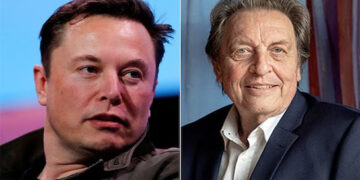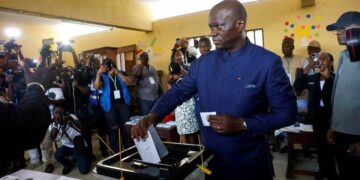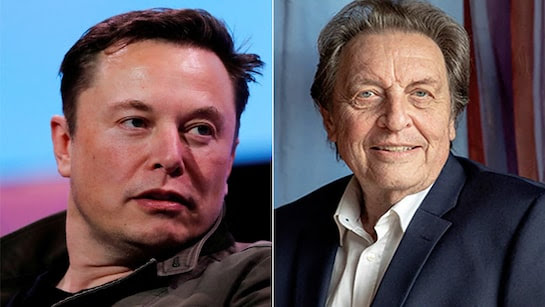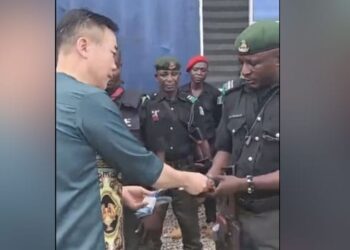By Enyichukwu Enemanna
The telephone conversation between South African President Cyril Ramaphosa and tech billionaire Elon Musk on Monday evening was arranged by the latter’s father, 78-year-old Errol Musk has revealed.
“I was asked if I can arrange a quick talk between Ramaphosa and Elon last night … so I did, and then they spoke a few minutes later,” Errol Musk told Reuters at his home in the predominantly white region of Langebaan, where a Bentley and a Rolls-Royce were parked.
U.S. President Donald Trump, an ally of Elon Musk, had threatened to cut more than $400 million in funding to South Africa over a land law recently signed by Ramaphosa, which white citizens claim is aimed at seizing their land.
An adviser to Ramaphosa, Bejani Chauke, had earlier contacted Musk’s father—an engineer who lives in a luxury two-storey building, a two-hour drive from Cape Town—seeking his assistance in easing tensions between Ramaphosa and the U.S. leader.
Chauke, however, did not respond to questions about his role in contacting Musk’s father.
In a post on the X social media platform, Ramaphosa’s office confirmed the phone conversation with Elon Musk, who was born in South Africa.
Ramaphosa’s spokesperson declined to comment on how the conversation with Musk came about or on its content, stating only: “Errol Musk is a private citizen, his views are his personal views.”
The trigger for the sudden flurry of backdoor diplomacy was a post on Sunday by Trump on his Truth Social platform, in which he said, “South Africa is confiscating land,” and that “certain classes of people” were being treated “very badly,” sparking a row with Pretoria.
He added that he would cut off funding to the country in response, prompting a nearly 2% slide in South Africa’s rand in early trading on Monday, along with a fall in stocks and government bonds.
As a result, the cost of insuring South African debt against default rose to its highest level since early August.
Ramaphosa had last month signed a bill aimed at addressing racial disparities in land ownership that have persisted in South Africa since apartheid ended 30 years ago.
The law has attracted criticism from Elon Musk and many white farmers.

































